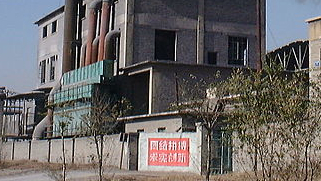Higher Inflation Would Slow U.S.-China Currency Adjustment

Lurking near the end of a long post about the political economy of inflation, Kindred Winecoff introduces the excellent point that the fact that the U.S. is experiencing an inflation rate that's lower than China's means that the real exchange rate is adjusting faster than the nominal rate. Consequently, "[t]o the extent that we want to boost employment through exporting, increased inflation could prolong that process."
Or to look at it another way, our inability to get China to allow for more rapid appreciation of the Yuan is arguably pressing us toward a lower-than-ideal inflation rate.
Either way, I do think that American commentators (myself included) sometimes neglect to fully appreciate the international dimensions of the economic situation. Whatever the shortcomings of American policymakers, the fact of the matter is that mistakes have been made all around the world. If Europe were handling its end of things better, then conditions in the United States would be better. If the Chinese were controlling inflation by letting its currency float rather than its current flailing efforts, then conditions in the United States would be better. These policy errors all around the world have a way of compounding.


Matthew Yglesias's Blog
- Matthew Yglesias's profile
- 72 followers



